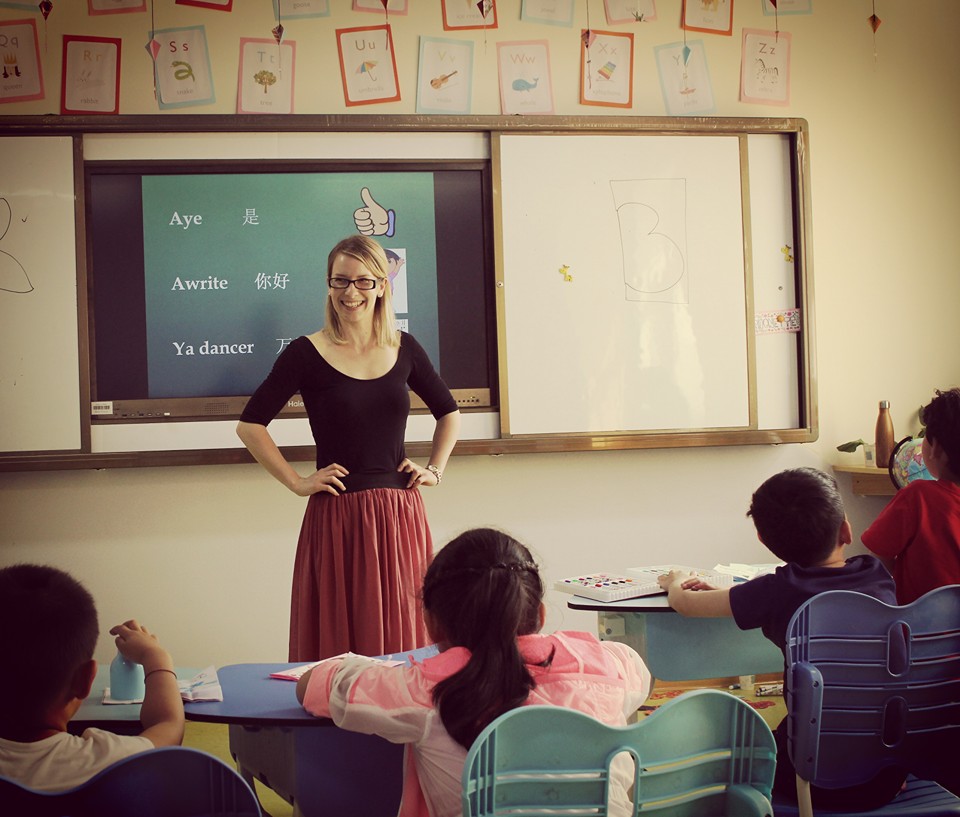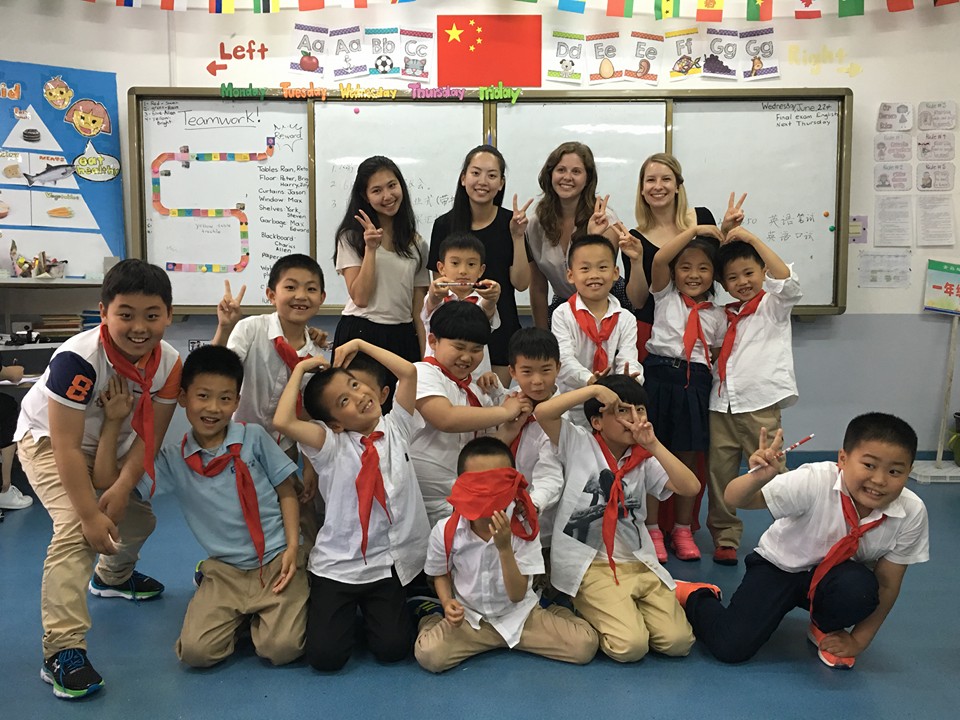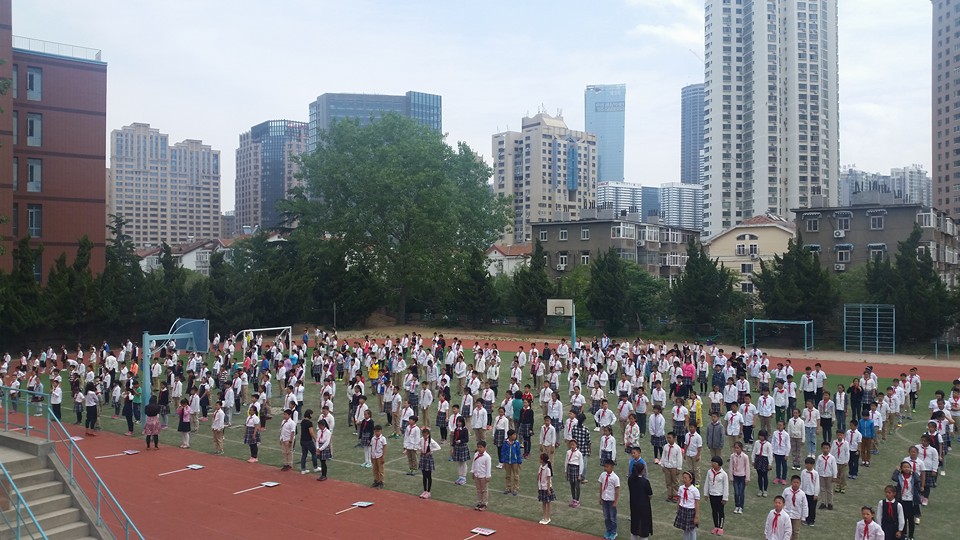Nǐ hǎo 你好! I am currently on a speed train from Shanghai to Beijing, after a whirlwind third and final week of our Community Field Experience in Qingdao, China. This week absolutely flew by. We spent Monday and Tuesday on an overnight trip with the Grade 6’s, driving 5 hours North to a city called Qufu to visit Confucious’ temple. Wednesday consisted of visiting and teaching in a local kindergarten school and teaching our own ‘international’ class, before finishing with a tour of the other school campuses on Thursday. Here are my final reflections on our third week and overall experience of teaching in Qingdao.
The importance of knowing your students
During my time teaching in Qingdao, I found that I felt a certain level of discomfort going into each lesson, and left each one feeling a certain level of dissatisfaction. This is partially because of the high expectations that I have for myself, and how much I base the success of each lesson on the students’ visible engagement and response. Reflecting on this, while I have left feeling dissatisfied, I am also aware that I have done the best that I can do considering the circumstances. When we went to visit and teach at the kindergarten school, we had no idea what the classroom looked like, where the students were in their learning, and what their level of English was. I tried to plan something simple and visual for these reasons, but with no translator and no understanding of English, it is very hard to do a good job when you’re going in blind, and when even ‘accessing prior knowledge’ is near impossible. I believe that one of my strengths is the value I have in a student-led classroom and my ability to adapt accordingly. Thus I believe this is where my discomfort stemmed from, being the first time I have been in a fully teacher-led classroom where students were unable to fully and meaningfully contribute. This will be a great reminder for me moving forward, highlighting the importance of truly knowing your students’ strengths and weaknesses on a individual basis, and being able to adapt accordingly.
An IB “lesson”
Being the only TC at the school that is “IB trained”, myself and one of the other TC’s were asked to team teach an ‘IB lesson’ in the international class. The difficulty with this is that there is no such thing as having a one-off ‘IB lesson’. IB is a model, and a ‘mindset’, and doing a one-off inquiry lesson still would not allow for us to fully model an IB classroom authentically. In only having 35 minutes, we decided to do a paper aeroplane contest, where the students would have to ask questions, make observations, collaborate, and make conclusions. This would allow us to demonstrate some of the transdisciplinary skills central to IB. I attempted to bring in some of the IB language, but unfortunately the students did not even know what ‘question’ was in English (even though a large portion of their classes are in English). A huge portion of IB is collaboration and reflection, and even though we had 8-10 staff observing us, they were all very reluctant to translate. A few of them asked us afterwards ‘ why were we teaching how to make paper aeroplanes?’, and ‘why were the students asking questions?’. Teaching this lesson initially made me question my understanding of IB, but in thinking deeper about this, it made me realize how far I have come as an IB teacher.
What’s more, teaching at the school made me realize the investment, thoughtfulness, and skill-level teachers have to apply in order to teach IB. My practicum school was also a candidate school, but they were already experts in inquiry-based teaching, so this transition was much more streamlined. Everyone from the administration to every teacher has to be on board… it’s not just a case of flicking a switch and you can integrate an IB program. Fortunately, BC’s new curriculum is extremely aligned with the PYP’s essential elements. However, while the school in China spends a lot of time on marketing the IB program (and they have just increased their fees based on this), I did not see any attempt of any IB-related teaching and learning. It makes me wonder how other Chinese schools have made the transition from a very strict and teacher-driven classroom to incorporating some level of inquiry…?
Canadian vs. Chinese schooling
Obviously, I am biased. But having now spent some time observing and teaching in the Chinese education system, I feel very fortunate to be gaining my education degree and be teaching in Canada. I truly believe that the BC curriculum is forward-thinking, innovative and well-rounded. Of course there are valuable reasons for there being such a difference in China: with such a high, dense population, university entrance requirements and jobs are extremely competitive. The few families I have spoken to about this, even the parents feel a little sad that their child has had to give up their hobbies such as painting and music, with their evenings and weekends now taken up with tutoring and extra classes. But they have little choice. We are so fortunate to have an education system that values the importance of extra-curriculars and social emotional learning. This will be an important reminder for when we have ELL or new international students in our classrooms. Not only have I learned a huge amount on attempting to create an accommodating learning environment for them, but also regarding the social, emotional, and cultural changes they are experiencing as they transition into the Canadian education system, as well as into Canadian life.
I feel so fortunate to have had this experience of teaching in another country… a country where the education system is so different from our own. It was the perfect way to round off my experience as we near the end of our Bachelor of Education, and transition into thoughtful, well-rounded, and innovative, BC-qualified teachers.





